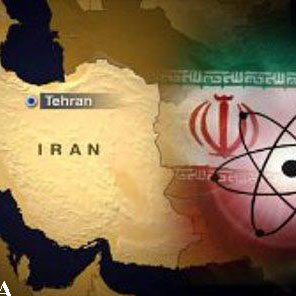In Unison, We Can Strike a Deal

“The door is open to every country, even the US, for providing Tehran reactor’s fuel; any country which is ready to do so in practice and without any precondition, can enter into talks with Iran,” said Head of Iran’s Parliament National Security and Foreign Policy Commission Alla’eddin Boroujerdi on Sunday, May 9, 2010.
In Iran, and on an issue as sensitive as the nuclear program, political observers have limited access to information about any possible backstage talks between Iran and the U.S. Information from media outlets is in fact the basic stock used for analysis of the situation. Nevertheless, rumors about behind-the-scenes negotiations between Tehran and Washington have been circulating around for a long time. Interestingly, in a rare move, on Thursday 6th of May, the Iranian Foreign Minister hosted a dinner event in New York attended by the UN Security Council members—although with the exception of China, the veto-wielding states declined to send their most senior diplomats. Even if any tacit agreements were reached at the dinner, no reliable news has leaked out so far.
A long path lies ahead of Iran and the U.S. for an agreement on the nuclear program. So far both parties have proved to be reluctant to step onto this path, preferring a firm stand on their respective positions. While Tehran insists on a fuel swap inside its territory, Washington is adamantly demanding that Tehran hand over its uranium stockpile to sent overseas.
Signals sent by Tehran hint that it is ready to cooperate with Ankara as a third party mediating the fuel swap, but it has not yet become clear if a prospective deal will involve the swap taking place inside or outside Iranian territory. This is a decision that requires unanimity inside the byzantine Iranian decision-making body, and as long as one influential constituent of the political system is dubious about the deal, no actual decision will be made.
The problem of disunion is not exclusive to Iran, however. On the other side, the U.S. and the European Union face an unwilling China and a slippery Russia. Iran should identify the point at which it optimally fulfills its national interests, and the party that can provide the path to this crucial point. At this moment, Iran should ask itself if it trusts the P5+1 to be that party.
The Geneva negotiations in October 2009 revealed that inside Iran, there is no coherence in foreign policy: the government sometimes makes agreements that are later refuted by more powerful entities. But Tehran should move towards unison in foreign policy, since ambiguity serves it no good under current circumstances. Inside the political system, there may be groups interested in advancing nuclear talks and making a direct nuclear fuel exchange deal with the United States, but it is clear that Supreme Leader Ayatollah Khamenei is the final arbiter on the nuclear program.
Mehdi Mohtashami is U.S. affairs analyst.

